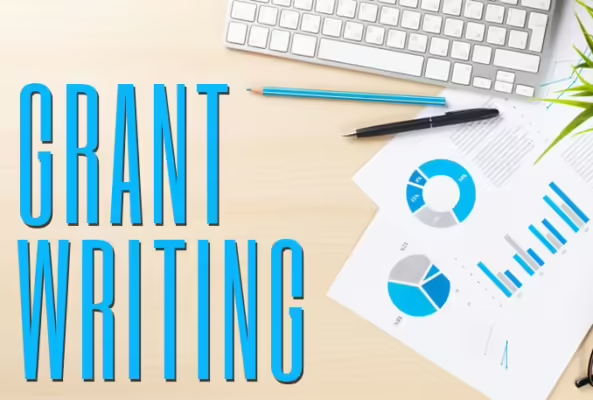Securing funding is crucial for any entrepreneur looking to launch or grow their business. While loans are a common route, they come with the burden of repayment and interest. That’s where the allure of “free money” comes in – small business grants. These golden opportunities provide funding without the strings of repayment, but winning them requires a strategic approach and a well-crafted application.
Mastering the art of writing small business grants is essential for any entrepreneur hoping to tap into this valuable resource. It’s not just about filling out forms; it’s about crafting a compelling narrative that persuades funders why your business deserves their support.
This article will equip you with five powerful tips to transform your grant applications from good to exceptional, significantly increasing your chances of securing the funding you need.
1. Understand Your Audience (and Speak Their Language)
Imagine entering a room full of investors and delivering a pitch irrelevant to their interests. You wouldn’t get very far, would you? The same principle applies to grant applications.
Before putting pen to paper (or fingers to keyboard), thoroughly research the grant-making organization. Delve into their mission, values, funding priorities, and past grant recipients. What problems are they passionate about solving? What kind of impact do they seek to make?
Once you understand your audience, tailor your application to resonate with their specific interests. Use language that aligns with their mission and highlights how your business directly addresses their funding priorities. Remember, it’s not just about what you need; it’s about how your business aligns with their vision.
2. Craft a Compelling Narrative
Your grant application should tell a story – a compelling narrative that captures the reader’s attention and leaves a lasting impression. Think of it as a pitch, but instead of a few minutes, you have a few pages to make your case.
Start with a strong hook that grabs the reader’s attention. Clearly articulate the problem your business solves, the solution you offer, and the impact your work will have. Use vivid language, compelling examples, and quantifiable data to paint a picture of your business’s potential.
Remember, grant reviewers read countless applications. Make yours stand out by infusing it with passion, authenticity, and a genuine desire to make a difference.
3. Showcase Your Impact
Grant funders are looking for businesses that will use their money wisely and make a tangible impact. Don’t just tell them what you’ll do; show them how you’ll measure success and the difference your business will make.
Use quantifiable data, metrics, and milestones to demonstrate the potential return on their investment. For example, instead of saying, “We will create jobs,” state, “With the grant funding, we project creating 15 new jobs within the next two years.”
Clearly outline your evaluation methods and how you’ll track progress toward your goals. The more specific and measurable your impact statements, the more confident funders will be in your ability to deliver results.
4. Sweat the Small Stuff
In the world of grant writing, the devil is in the details. A poorly formatted document, grammatical errors, or incomplete information can be the difference between success and rejection.
Carefully review the grant guidelines and ensure you adhere to all formatting requirements, word limits, and submission deadlines. Proofread your application meticulously, or better yet, have a fresh pair of eyes review it for clarity and accuracy.
Remember, a polished and professional application demonstrates your attention to detail and commitment to the process, reflecting positively on your business.
5. Don’t Be Afraid to Seek Help (and Leverage Resources)
Writing successful small business grants can be a daunting task, but you don’t have to go it alone. Numerous resources are available to help you navigate the process and increase your chances of success.
The Small Business Administration offers free counselling and resources for entrepreneurs seeking grant funding. SCORE, a nonprofit organization, provides mentorship and workshops on grant writing. Additionally, many online resources offer tips, templates, and guidance for crafting compelling grant applications.
Feel free to reach out for help and leverage the expertise of those who have successfully navigated the grant writing process.
Conclusion: Your Path to Free Business Funding Starts Now
Securing a small business grant can be a game-changer for your entrepreneurial journey, providing the capital you need to launch, grow, and make a real impact. By mastering the art of writing small business grants, you’ll significantly increase your chances of securing this valuable funding.
Remember, it’s not just about filling out forms; it’s about crafting a compelling narrative that resonates with funders.




